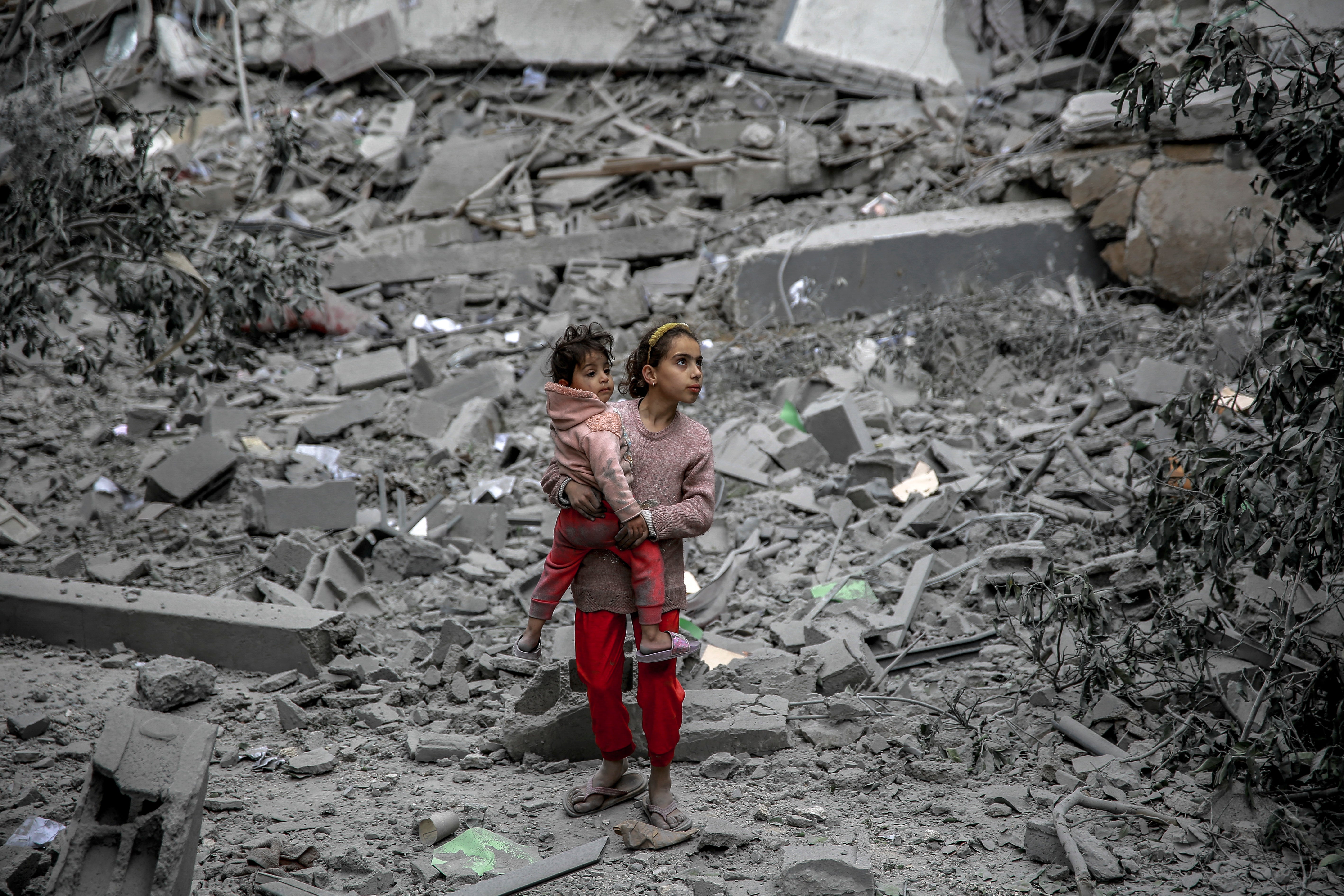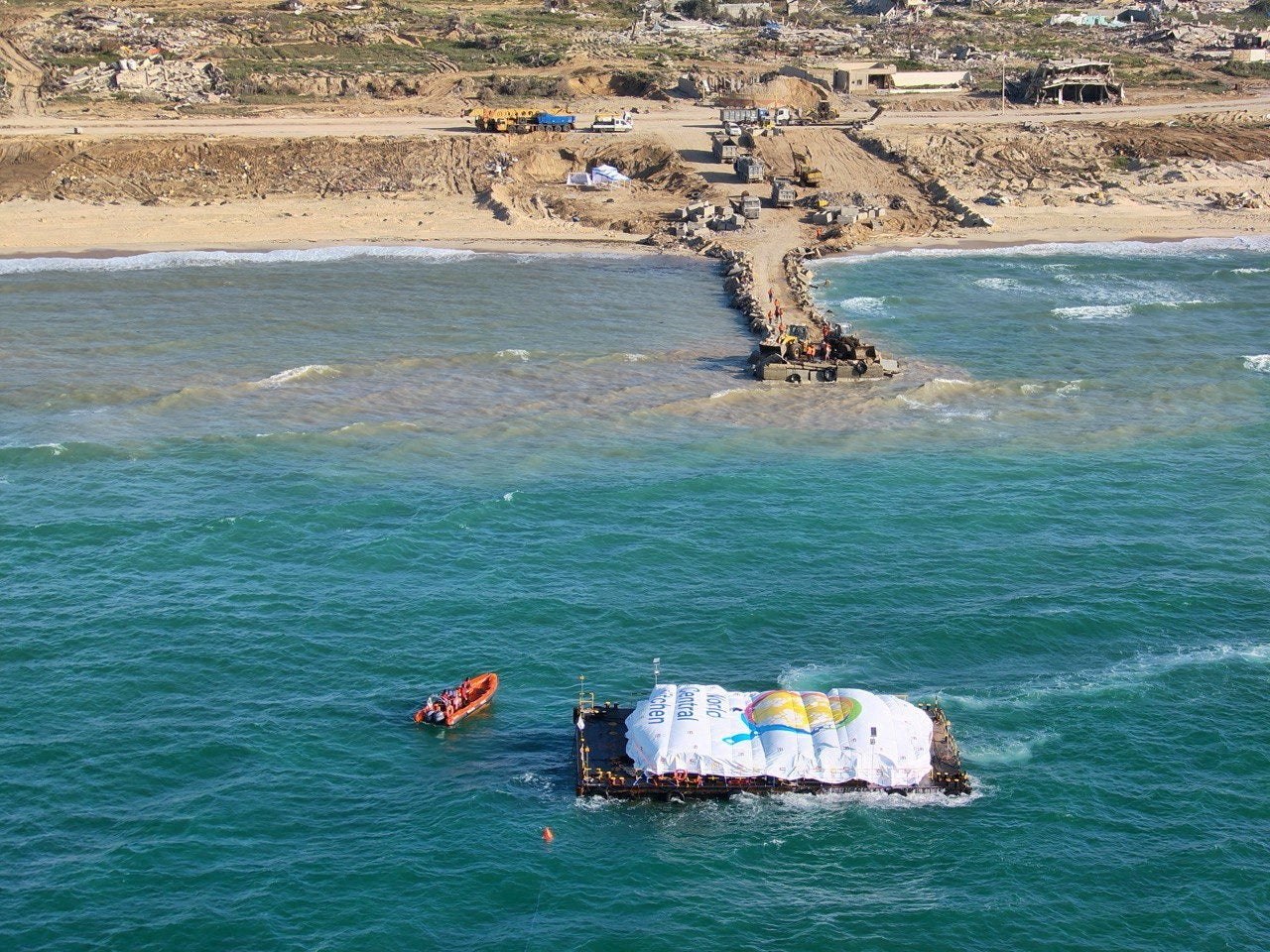There is a strict definition before famine is declared – Gaza is about to reach it
Famine has been declared twice in the past 13 years: in Somalia in 2011 and in parts of South Sudan in 2017

Famine is looming by May in the Gaza Strip, a UN-backed report has forecast, without an end to fighting that has decimated the Palestinian territory and cut off supplies.
Famine is assessed by the Integrated Food Security Phase Classification (IPC), an initiative of more than a dozen UN agencies, regional bodies and aid groups.
On Monday the IPC said that across the whole of the Gaza Strip the number of people facing “catastrophic hunger” has risen to 1.1 million, about half the population of the besieged coastal enclave.
That is nearly double the figure deemed at risk of catastrophic hunger in the previous IPC report in December, when there was already record hunger.
“Famine is now projected and imminent in the North Gaza and Gaza Governorates and is expected to become manifest during the projection period from mid-March 2024 to May 2024,” it said.
For famine to be declared, at least 20% of the population must be suffering extreme food shortages, with one in three children acutely malnourished and two people out of every 10,000 dying daily from starvation or from malnutrition and disease.

Famine has been declared twice in the past 13 years: in Somalia in 2011 and in parts of South Sudan in 2017.
On Monday the IPC said that from mid-March to mid-July, in the most likely scenario and assuming a worsening of the war including a ground offensive in Rafah city, half of Gaza’s population or 1.11 million people were expected to face catastrophic conditions.
In late December, the IPC said the situation in Gaza had already exceeded the 20% threshold.
It said the remaining two thresholds - the number of children acutely malnourished and the number of people dying daily from starvation or from malnutrition and disease - “may also be breached at some point” in the coming months.
What does it mean to declare famine?
While a declaration of famine does not trigger any formal response, it can help focus global attention on how to help. But as UN Office for the Coordination of Humanitarian Affairs has said: “Once a famine is declared, it is too late for too many people.”
The United Nations views Israel as the occupying power in Gaza and says the Israeli military has a responsibility to facilitate humanitarian operations within the enclave.

Under the 1949 Geneva Conventions on the laws of war: “To the fullest extent of the means available to it, the occupying power has the duty of ensuring the food and medical supplies of the population.”
What does Israel say?
Israel captured the West Bank, Gaza and East Jerusalem in a 1967 war. These are areas of historic Palestine which the Palestinians want for a state. Israel withdrew from Gaza in 2005 and Hamas won elections in 2006. But Israel, along with neighbouring Egypt, still controls the borders of the enclave.
Israeli leaders have long argued that Gaza and the West Bank are not formally occupied on the basis that they were captured from Jordan and Egypt during the 1967 war rather than from a sovereign Palestine. Israel also stresses the Jewish people’s historical and Biblical ties to the land.
Why is the situation so dire?
The war in Gaza began when Hamas fighters attacked Israel on Oct. 7, killing about 1,200 people and seizing 253 hostages, according to Israeli tallies. Israel retaliated by initially imposing a “total siege” on Gaza and launching an air and ground assault has since killed about 30,000 Palestinians, health authorities in the Hamas-run enclave say.
Some aid can be delivered into southern Gaza via the Rafah crossing from Egypt and Kerem Shalom crossing from Israel.
The UN Palestinian refugee agency UNRWA has said that during February an average of nearly 97 trucks were able to enter Gaza each day, compared with about 150 trucks a day in January - well below a target of 500 trucks a day.

The United Nations has described aid access as “unpredictable and insufficient,” blaming military operations, insecurity and extensive restrictions to delivery of essential supplies.
Specifically the UN cites: border crossing closures, serious movement restrictions, access denials, onerous vetting procedures, security risks, incidents by desperate civilians, a breakdown of law and order, and restrictions on communications and protective equipment.
Israel has said it is committed to improving the humanitarian situation in Gaza and there is no limit on the aid for civilians. It has blamed the United Nations for any delivery issues, saying limitations on the quantity and pace of aid are dependent on the capacity of the UN and other agencies.
Join our commenting forum
Join thought-provoking conversations, follow other Independent readers and see their replies
Comments
Bookmark popover
Removed from bookmarks